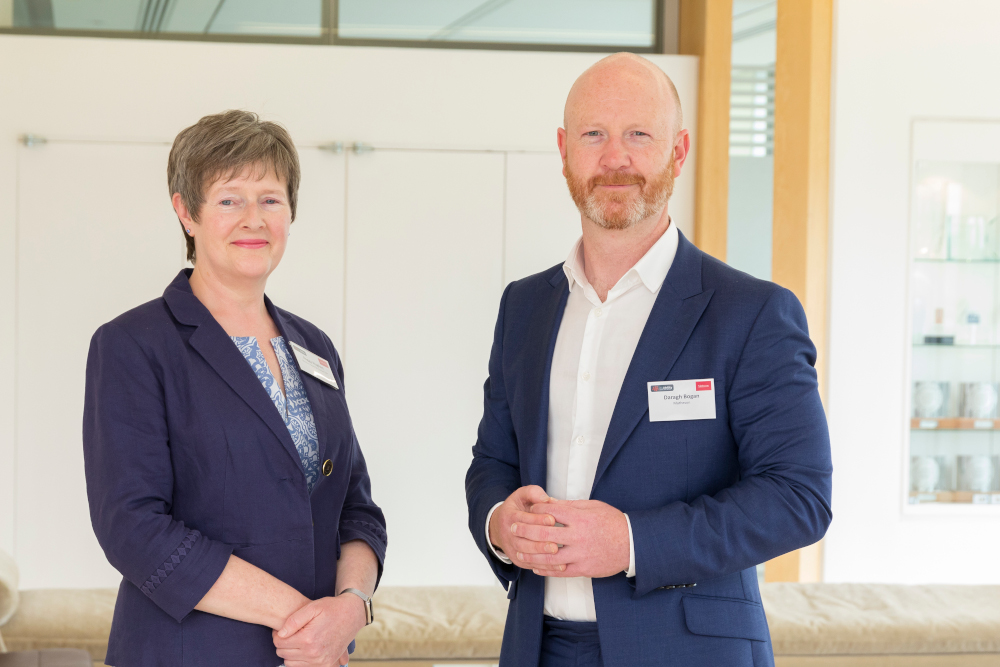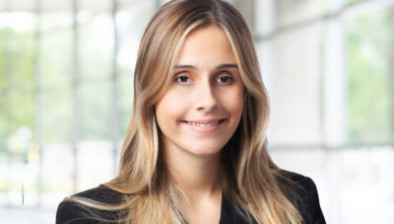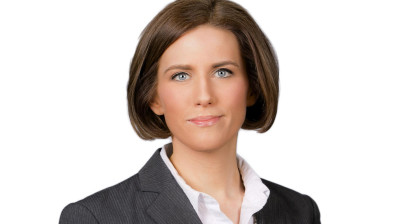Law firms urged to recognise and support neurodiversity

Pictured (L-R): Peggy Hughes and Daragh Bogan
Law firms which support neurodiverse individuals and embrace their unique talents have access to a valuable source of highly skilled talent, an event organised by the disAbility Legal Network has heard.
The “Neurodiversity in the Legal Sector” event, hosted by Matheson, focused on the strengths neurodivergent people bring to the workplace while also recognising the challenges still facing many neurodivergent people in the legal sector.
‘Neurodiversity’ refers to the variation between human brains and human minds. The group has urged the legal sector to recognise neurological differences as an essential form of human diversity which should be supported.
The hybrid event heard from speakers including Tara Cunningham, chief executive officer at Beyond Impact; Peggy Hughes, partner at Mason Hayes & Curran; Amelia Platton, founder of The Neurodiverse Lawyer Project; and Matheson solicitor Nuala McAnally.
Led by Daragh Bogan, secretary of the disAbility Legal Network and manager of Matheson’s impactful business programme, the panel shared their own lived experiences and considered the changes needed to ensure equality for all in the legal sector today.
Jane Barrett, chairperson of the disAbility Legal Network and associate at William Fry, said: “I would like to thank all of the panellists for sharing their unique perspectives. Today’s event highlights the importance of creating a culture of inclusion to increase workplace diversity and better integrate and leverage the full potential of neurodivergent professionals.”
Mr Bogan said: “I am delighted that Matheson was invited to host the second disAbility Legal Network event and it is extremely encouraging to see so much interest in the network, from all across the legal sector.
“I would like to thank Tara, Amelia, Peggy and Nuala for sharing their lived and at time very personal experiences in such an open way, which I feel brought huge value to the event.”
He added: “In recent years there has been an increased focus on neurodiversity in the workplace and the significant benefits which it brings, but much work remains to be done in creating supportive workplace environments and tackling the stigma which often accompanies neurodiversity.
“An event such as today’s might have been unthinkable just a few years ago and the fact that we are now having conversations about disability and/or neurodiversity in the legal sector shows how far we have come in such a short time.”










